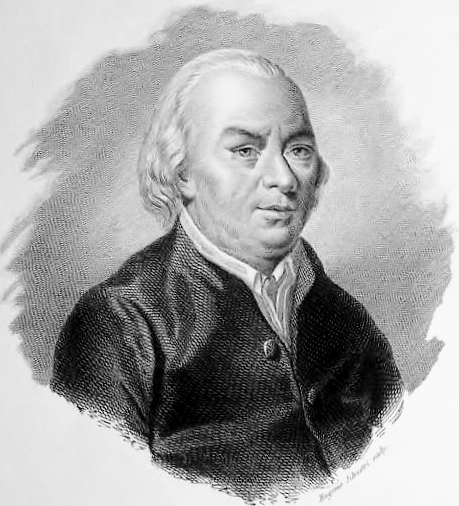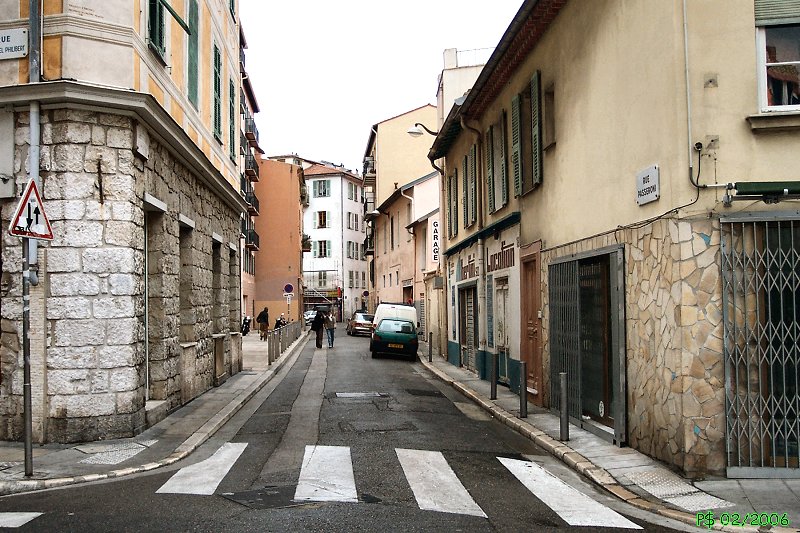Gian Carlo Passeroni on:
[Wikipedia]
[Google]
[Amazon]
 Gian Carlo Passeroni (8 March 1713 – 26 December 1803) was an Italian satirical poet, the most important of the 18th-century Nice poets. He was an ordained priest and for much of his career lived an ascetic life in Milan. He is best known for his lengthy satirical poem ''II Cicerone''.
Gian Carlo Passeroni (8 March 1713 – 26 December 1803) was an Italian satirical poet, the most important of the 18th-century Nice poets. He was an ordained priest and for much of his career lived an ascetic life in Milan. He is best known for his lengthy satirical poem ''II Cicerone''.

Early years and education
Passeroni was born in 1713 in Condamine di Lantosca, a small settlement in theCounty of Nice
The County of Nice (; ; Niçard ) was a historical region of France and Italy located around the southeastern city of Nice and roughly equivalent to the modern arrondissement of Nice. It was part of the Savoyard state within the Holy Roman Emp ...
, then part of the Kingdom of Sardinia
The Kingdom of Sardinia, also referred to as the Kingdom of Sardinia and Corsica among other names, was a State (polity), country in Southern Europe from the late 13th until the mid-19th century, and from 1297 to 1768 for the Corsican part of ...
. His family were not rich, but at 14 he was invited to study in Milan
Milan ( , , ; ) is a city in northern Italy, regional capital of Lombardy, the largest city in Italy by urban area and the List of cities in Italy, second-most-populous city proper in Italy after Rome. The city proper has a population of nea ...
at the Jesuits College of Brera with an uncle who was a priest. After completing his studies, he was ordained and celebrated his first mass
Mass is an Intrinsic and extrinsic properties, intrinsic property of a physical body, body. It was traditionally believed to be related to the physical quantity, quantity of matter in a body, until the discovery of the atom and particle physi ...
in Condamine.
Literary career
Returning to Milan, he concentrated on literary studies, becoming sufficiently famous for his learning that the Lucini family appointed him tutor to the youngMarquess
A marquess (; ) is a nobleman of high hereditary rank in various European peerages and in those of some of their former colonies. The German-language equivalent is Markgraf (margrave). A woman with the rank of a marquess or the wife (or wid ...
Cesare Alberico Lucini. Passeroni and the Lucini family formed a warm friendship and they sponsored his education and his writing of poetry. In 1743, with Count Giuseppe Maria Imbonati, he revived the Accademia dei Trasformati, an intellectual society, and the following year accompanied his pupil to continue his studies in Rome. Eight months later, he returned to Milan.
In 1759, Passeroni followed his former pupil Lucini, who had been elevated to titular archbishop of Nicaea
Nicaea (also spelled Nicæa or Nicea, ; ), also known as Nikaia (, Attic: , Koine: ), was an ancient Greek city in the north-western Anatolian region of Bithynia. It was the site of the First and Second Councils of Nicaea (the first and seve ...
, to Cologne
Cologne ( ; ; ) is the largest city of the States of Germany, German state of North Rhine-Westphalia and the List of cities in Germany by population, fourth-most populous city of Germany with nearly 1.1 million inhabitants in the city pr ...
, where he had been appointed papal nuncio
An apostolic nuncio (; also known as a papal nuncio or simply as a nuncio) is an ecclesiastical diplomat, serving as an envoy or a permanent diplomatic representative of the Holy See to a state or to an international organization. A nuncio is a ...
. However, while still young, he resigned his position as his chaplain and returned once more in Milan, where he lived in intentionally frugal and humble circumstances. He lived in a cellar with only a rooster as a companion, thread-bare clothing and minimal furniture. He refused help from friends, and around 1758, he had refused a chair
A chair is a type of seat, typically designed for one person and consisting of one or more legs, a flat or slightly angled seat and a back-rest. It may be made of wood, metal, or synthetic materials, and may be padded or upholstered in vario ...
at the University of Padua
The University of Padua (, UNIPD) is an Italian public research university in Padua, Italy. It was founded in 1222 by a group of students and teachers from the University of Bologna, who previously settled in Vicenza; thus, it is the second-oldest ...
. After 1770, he suffered various economic hardships, which both the Austrian government of Maria Theresa
Maria Theresa (Maria Theresia Walburga Amalia Christina; 13 May 1717 – 29 November 1780) was the ruler of the Habsburg monarchy from 1740 until her death in 1780, and the only woman to hold the position suo jure, in her own right. She was the ...
and the Napoleonic government of the Cisalpine Republic
The Cisalpine Republic (; ) was a sister republic or a client state of France in Northern Italy that existed from 1797 to 1799, with a second version until 1802.
Creation
After the Battle of Lodi in May 1796, Napoleon Bonaparte organized two ...
in Italy attempted to alleviate with financial assistance. In thanks for the pension he received from the Italian Republic, he had his unpublished poetry bound in a volume which he dedicated to Vice President Melzi d'Eril. A few years before his death in 1803, Napoleon appointed him a member of the ''Istituto Nazionale''. However, he continued to live simply in the cellar until his death in 1803.

Works
''Il Cicerone'', the work for which he is best known, was published in six volumes in Milan between 1755 and 1774. He began composing it before 1743, and had already recited parts of it to literary audiences during his time in Rome. Consisting of 101 octave cantos and divided into three parts, it purports to be a biography ofCicero
Marcus Tullius Cicero ( ; ; 3 January 106 BC – 7 December 43 BC) was a Roman statesman, lawyer, scholar, philosopher, orator, writer and Academic skeptic, who tried to uphold optimate principles during the political crises tha ...
, a Roman orator, but contains lengthy satirical and ironic digressions in which he rails at fortune and the society of his own century. The language is unaffected and the tone bantering. Some of the topics covered are "portrait painting, amorous poetry, economy and extravaganza, loose conversations, theater, musicians, antiquaries, painters and so forth". The work is compared to Laurence Sterne
Laurence Sterne (24 November 1713 – 18 March 1768) was an Anglo-Irish novelist and Anglican cleric. He is best known for his comic novels ''The Life and Opinions of Tristram Shandy, Gentleman'' (1759–1767) and ''A Sentimental Journey Thro ...
's ''The Life and Opinions of Tristram Shandy, Gentleman
''The Life and Opinions of Tristram Shandy, Gentleman'', also known as ''Tristram Shandy'', is a humorous novel by Laurence Sterne. It was published in nine volumes, the first two appearing in 1759, and seven others following over the next sev ...
''.
Passeroni also wrote ''Epigrammi greci'' (Greek epigrams), published in Milan in 1786, ''Favole Esopiane'' (Fables of Aesop
Aesop ( ; , ; c. 620–564 BCE; formerly rendered as Æsop) was a Greeks, Greek wikt:fabulist, fabulist and Oral storytelling, storyteller credited with a number of fables now collectively known as ''Aesop's Fables''. Although his existence re ...
), published in Milan in seven volumes in 1780–86, and ''Rime giocose, satiriche e morali'' (Amusing, satirical and moral rhymes), published in 1776.
Legacy
He was admired in his lifetime for his pious and simple way of life.Giuseppe Parini
Giuseppe Parini (23 May 1729 – 15 August 1799) was an Italian satirist and Neoclassicism, Neoclassical poet.
Biography
Parini (originally spelled Parino) was born in Bosisio Parini, Bosisio (later renamed Bosisio Parini in his honour) in Brianz ...
, the Italian Enlightenment satirist and poet, stated that he owed the formation of his own style to Passeroni. Rue Passeroni in Nice is named in his honour.
Works
*See also
References
:External links
* * {{DEFAULTSORT:Passeroni, Gian Carlo Italian poets Italian male poets 1713 births 1803 deaths Writers from Nice Italian satirists Italian satirical poets Italian male non-fiction writers